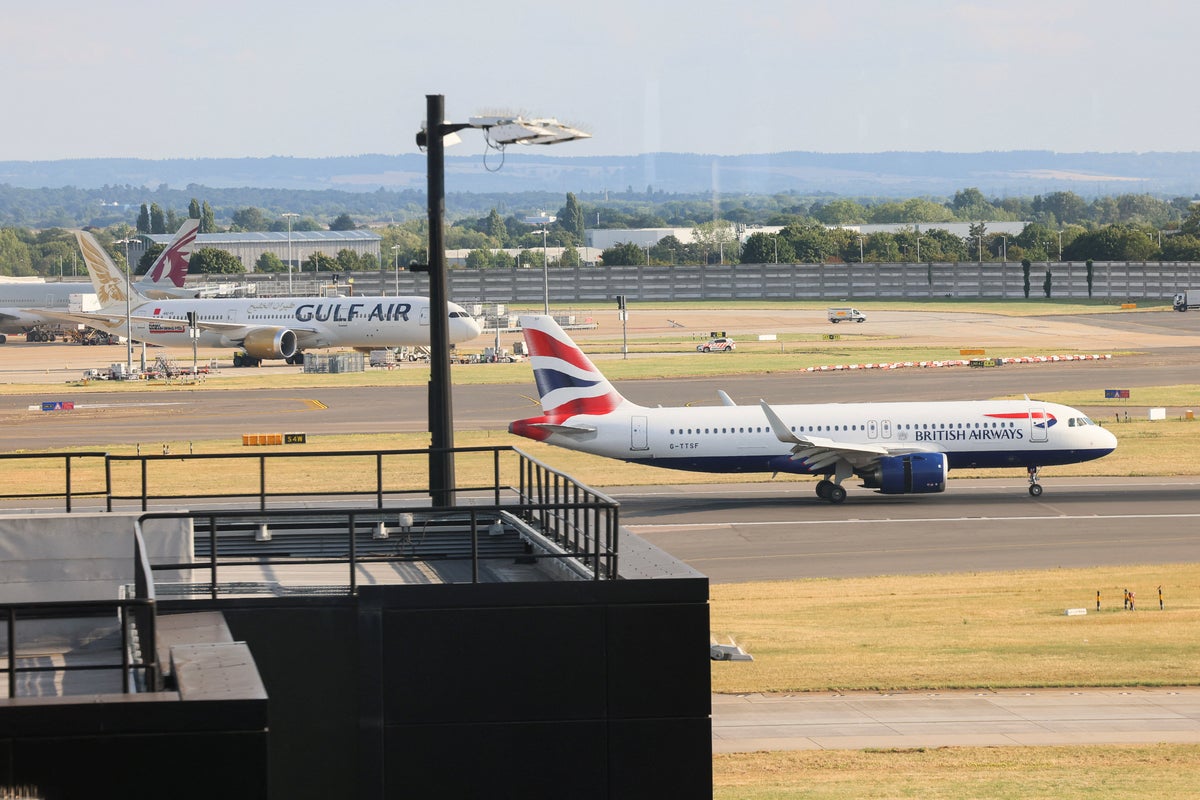
The five-day doctor strike in England may be ending, but it is clear this dispute – 12 walkouts and counting – is far from over.
“We’ve been let down by Wes Streeting,” says Dr Shivam Sharma, who joined one of the last picket lines of the walkout before it finishes at 07:00 on Wednesday.
When Labour came to power they quickly managed to make a deal with the British Medical Association, handing them extra money and promises of improvements to working conditions.
Doctors took that as a sign that the journey towards restoring pay to 2008 levels was in sight but that still requires another 25% hike in pay, on top of previous rises.
“Since last year he has not delivered,” says Dr Sharma, who is six years into his training in child and adolescent psychiatry, when asked why walkouts have returned.
Dr Sharma, who joined other striking doctors outside an east London hospital in Streeting’s constituency, says his years as a resident doctor, the new name for junior doctors, have been hard – harder than they should have been.
He faced regular rotations through different jobs across the West Midlands in his early years. “You can be posted anywhere across large geographic areas. You have little control over your rotas, people missing weddings and important family events.”
In September, he is sitting an exam which will set him back more than £1,000. “That’s just for one exam. It can cost us tens of thousands of pounds over the course of our training.”
The BMA’s position remains the best way to solve this dispute is to increase pay further. But with the government adamant pay for this year cannot be revisited (resident doctors are getting an average 5.4% rise in 2025-26) attention has turned to non-pay issues.
During five days of talks, which broke down on Tuesday last week, a range of topics were discussed, including exam fees, career progression and the frequency of job rotations, which for some can happen every four months.
The BMA wanted to add writing off student loans (medical students can rack up £100,000 of debts) although the government refused to countenance this.
‘Breathing space’
With the clock ticking, the dispute turned acrimonious when the BMA announced its first strike under Labour would go ahead.
Streeting accused the BMA of being reckless and showing “complete disdain” for patients. The union responding by saying they were losing confidence in any of the promises being made.
Tensions boiled over between NHS England and the union on Monday, with health leaders criticising the “hardline” approach of the BMA for blocking requests to let doctors return to work to deal with emergencies.
The union has responded by accusing the NHS of putting patients at risk by stretching senior doctors covering for striking resident doctors too thinly.
At times, a return to the negotiating table has seemed almost impossible but, with the strike ending, both sides have shown signs of softening.
Senior sources at the BMA have talked about not wanting to get into a cycle of strikes and no talks, as they did in the latter months of the Tory government – there were 11 strikes in the space of 16 months. They mention creating “breathing space” in the coming days and weeks for further negotiation.
It has also not gone unnoticed within the BMA that public opinion appears to have swung against resident doctors.

Meanwhile, those close to Streeting stress he wants to get a deal done, although he remains disappointed the union did not at least postpone this strike to continue the talks.
And in a statement to coincide with the end of the strike, the health secretary said: “My door is open to resume the talks we were having last week.”
But, if they do get around the table, is there enough common ground for a deal to be reached given the BMA wants more pay rises and the government is adamant this is not an option?
“It won’t be easy,” says Dr Billy Palmer, an NHS workforce expert at the Nuffield Trust think-tank. “This divisive situation is taking a toll on doctors and the wider NHS alike.”
He says alongside pay, retention and wellbeing are “real problems” but he believes a series of individual changes could combine to have a potentially significant impact.
Alongside covering the cost of out-of-pocket expenses like exam fees and making the system of rotas and rotations less brutal, he has other suggestions.
These include student loan repayment holidays so doctors can delay, interest free, paying them off until they start earning more.
He also mentions the need to tackle the shortage of speciality jobs that resident doctors move into after the first two years of training. Figures from the BMA show there were more than 30,000 doctors chasing 10,000 posts this year.
In addition, he warns the government may still have to address one particular pay issue, pointing to the anomaly that means first-year resident doctors earn less than physician assistants.
Would it all be enough to resolve this? Possibly, he says, but as with everything in this long-running dispute, there are no guarantees.




